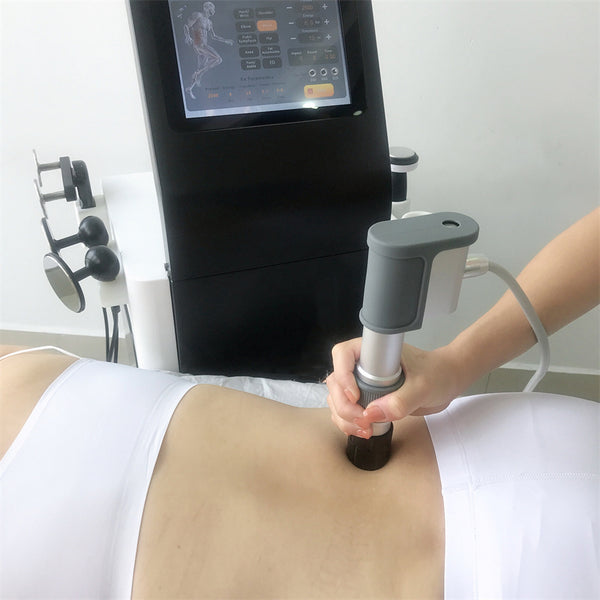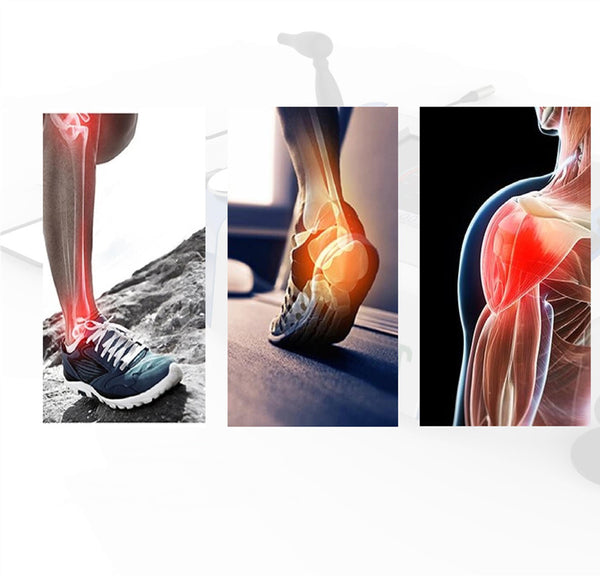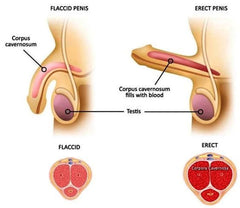Are you looking for a solution to help your clients, customers, or patients with their arthritis? Do your research have you wondering if #shockwave therapy could be the answer? If so, then you’ve come to the right place. Shockwave therapy is being increasingly studied as an effective treatment option for chronic joint disorders such as arthritis. In this article, we will explore what shockwave therapy entails and how it can potentially offer relief from the symptoms of arthritis. We'll look at current research studies that examine its effects on arthritic pain in depth, potential benefits and risks associated with the procedure, comparisons between shockwave therapy and other available treatments in terms of effectiveness and duration of results attained. Finally, we'll give you insights into whether or not this type of storage technique is worth considering for those suffering from arthritis discomfort.
What is shockwave therapy and what does it do for arthritis sufferers
Arthritis can be a debilitating condition that causes chronic pain and discomfort. While there is currently no cure for arthritis, there are several treatment options available to help manage symptoms. One of these options is shockwave therapy, a non - invasive treatment that uses acoustic waves to stimulate healing in the affected area. #Shockwavetherapy has been shown to reduce pain and inflammation in arthritis sufferers, as well as improve joint mobility and range of motion. By accelerating the body's natural healing processes, shockwave therapy offers a safe and effective alternative to traditional treatments like medication and surgery. If you are struggling with arthritis, consider asking your doctor about shockwave therapy as a potential treatment option.
Who might benefit from shockwave therapy
For those struggling with chronic pain, finding relief can seem like a daunting task. However, shockwave therapy has emerged as a promising treatment option that can provide significant relief for many different conditions. This non - invasive treatment involves using high-energy sound waves to promote healing and reduce pain. Who might benefit from shockwave therapy? Athletes with sports injuries, patients with plantar fasciitis, and those with chronic tendon or ligament issues are just a few examples . Additionally , shockwave therapy has been proven effective for those with chronic pain who have not had success with other treatments.With its ability to target pain and promote healing, shockwave therapy is a promising option for those seeking long-term relief from chronic pain.
How does shockwave therapy work
Are you tired of living with chronic pain that just won't go away? Shockwave therapy might be just the solution you need. This non - invasive treatment uses high-energy acoustic waves to stimulate the affected area, promoting healing and regeneration. Shockwave therapy works by breaking up scar tissue, reducing inflammation, and improving blood flow to the affected area, all of which can help alleviate chronic pain. It's a safe, effective way to treat a variety of conditions, from plantar fasciitis to tennis elbow. So if you're tired of living with pain, consider giving shockwave therapy a try. You just might be surprised at how much it can help.
Potential side effects of shockwave therapy
Shockwave therapy is a non-invasive and effective treatment for a multitude of conditions , ranging from plantar fasciitis to tennis elbow. However, like any medical treatment , it's important to be aware of potential side effects. While shockwave therapy is generally safe, some patients may experience redness, bruising, or swelling at the site of the treatment. Rarely, some patients may experience an increase in pain or nerve-related symptoms. It's crucial to discuss any concerns you may have with your #healthcare provider before undergoing shockwave therapy. By doing so, you can ensure the best possible outcome and minimize any potential risks.
Alternatives to shockwave therapy for joint pain relief
For those dealing with joint pain, shockwave therapy has become an increasingly popular option for finding relief. However, there are alternatives available for those who may not want to or cannot undergo this treatment. One option is #physical therapy , which utilizes exercises and stretches to improve joint mobility and reduce pain. Another alternative is acupuncture, which involves the placement of thin needles in specific areas to stimulate the nervous system and promote healing. Additionally, certain nutritional supplements and holistic remedies such as turmeric and fish oil may also provide relief for joint pain. It's important to consult with a healthcare professional to determine the best course of action for your individual needs.#clinic
Tips for finding the right doctor to administer shockwave therapy
When it comes to shockwave therapy, finding the right doctor to administer the treatment is crucial for achieving optimal results. So, how do you find the right doctor ? First , do your research and look for a specialist with experience in shockwave therapy . Check online reviews and ratings to get an idea of their reputation . It's also important to consider the doctor's qualifications and credentials. A doctor who is board-certified in their specialty is typically a good indicator of their expertise. Additionally, ask for referrals from other healthcare providers or friends who have had success with shockwave therapy. Remember, your health is important, so don't settle for less than the best when it comes to finding a doctor for your shockwave therapy.#physicaltherapy
Shockwave therapy is a scientifically proven and effective joint pain relief treatment option for arthritis sufferers that can provide long-term results. This could be the answer to managing your arthritis, however, it is important to remember that not everyone may benefit from this type of therapy. It is also important to consider potential side effects and other therapies available. Ultimately, the best way to know if shockwave therapy is right for you, is by speaking with your doctor and asking the right questions, such as what their experience with shockwave therapy treatments are and what risks, if any, may be associated with the treatment plan. With all this being said, it's essential to do research on this form of therapy prior to engaging in any unfamiliar medical treatments. Good luck on your quest for long-lasting joint pain relief! #erectiledysfunctiontreatment





